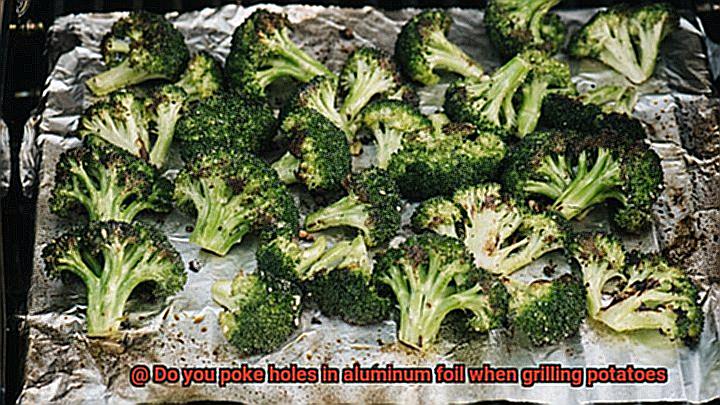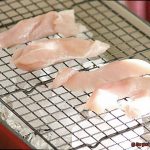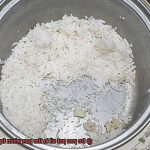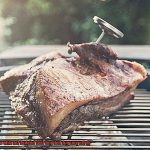Grilling potatoes is a classic summer activity that adds a mouthwatering smoky flavor to our meals. As outdoor cooking enthusiasts, we’re always on the lookout for ways to up our grill game. One topic that sparks heated discussions is whether poking holes in aluminum foil while grilling potatoes is necessary or just an extra step. So, let’s dive into the pros and cons of this culinary practice.
When it comes to flavor, poking holes in aluminum foil can make a big difference. Those little punctures allow steam to escape, enhancing the grilled potatoes’ smokiness and letting them soak up all those delicious grill flavors and seasonings you’ve added. It’s like a flavor explosion in every bite. However, if you prefer your spuds with a more subtle taste, keeping the foil intact might be your best bet.
Now, let’s talk texture. If crispy-skinned potatoes are your jam, then poking holes is crucial. By letting moisture evaporate through those tiny openings, you’ll achieve that coveted golden brown crust that makes every bite oh-so-satisfying. On the flip side, if you’re all about moist and tender potatoes, leaving the foil untouched will help retain that extra juiciness.
Convenience plays a role too. Poking holes in aluminum foil may seem like a hassle, especially when time is of the essence or you just want a fuss-free grilling experience. Opting for un-poked foil means less prep work and more time to focus on other aspects of your meal.
In conclusion, whether or not you should poke holes in aluminum foil when grilling potatoes boils down to personal preference for flavor, texture, and convenience. Poking holes amps up the smoky goodness and promotes crispiness, but if you lean towards mildness or tenderness, keeping the foil intact is the way to go.
The key is to experiment and find what suits your taste buds and grilling style best.
So, fire up that grill, grab those potatoes, and embark on a grilling adventure like no other.
Contents
What is the Purpose of Poking Holes in Aluminum Foil?
When it comes to grilling or baking certain foods, like potatoes, there’s a secret weapon that can make all the difference – poking holes in aluminum foil. This simple act serves a crucial purpose: it allows steam and heat to escape, ensuring that your food doesn’t become a soggy mess or suffer from overcooking.
Imagine this: you’ve meticulously wrapped your potatoes in aluminum foil, eager to enjoy their soft yet crispy goodness. But without those tiny punctures, the steam generated during cooking becomes trapped inside the foil, creating a moist environment that can turn your dreamy spuds into a mushy disappointment.
That’s where the holes come in. By poking them into the foil, you create a pathway for the steam to escape, allowing your food to cook evenly and develop that coveted crispy exterior.
But it’s not just about steam release; those holes also serve as moisture regulators. Excess moisture can ruin the texture and flavor of your food, making it feel heavy and waterlogged. The holes in the foil help to release that excess moisture, preventing steam buildup and ensuring a better cooking outcome.
Of course, the number and size of holes needed may vary depending on what you’re cooking. For potatoes, it’s advisable to poke multiple small holes all over the foil to ensure proper ventilation. However, delicate fish or vegetables may require fewer or smaller holes to preserve their tenderness while still allowing some steam to escape.
There’s one more benefit to poking those holes – it helps prevent your aluminum foil from tearing or bursting under pressure. The holes act as vents, relieving any excess pressure that may build up inside the foil during cooking.
So not only do you get perfectly cooked food, but you also avoid any unexpected foil-related disasters.
Now, it’s worth noting that there is some debate among grill enthusiasts about whether or not to poke holes when grilling potatoes. Some argue that keeping the foil intact helps retain moisture and flavor.
Ultimately, the decision comes down to personal preference and desired outcome. But if you’re aiming for that ideal balance between moisture retention and steam escape, poking holes in aluminum foil is the way to go.
Pros and Cons of Poking Holes in Aluminum Foil
When it comes to grilling potatoes, the decision to poke holes in aluminum foil is a topic of debate. On one hand, poking small holes in the foil can have several advantages. Let’s explore these pros in more detail:
- Even Cooking: Poking holes in the foil allows heat to penetrate the potatoes more efficiently, resulting in even cooking throughout. This is especially beneficial when grilling larger or thicker cuts of potatoes.
- Crispy Texture: The holes in the foil enable moisture to escape, preventing the potatoes from becoming soggy or mushy. Instead, you get a delightful crispness on the outside, while the insides remain tender.
- Better Flavor Infusion: When you poke holes in the foil, it allows smoke and flavors from the grill to permeate the potatoes more effectively. This results in a more flavorful end product with a subtle smoky taste.
- Faster Cooking Time: The direct exposure to heat speeds up the cooking process, reducing the overall grilling time for your potatoes.
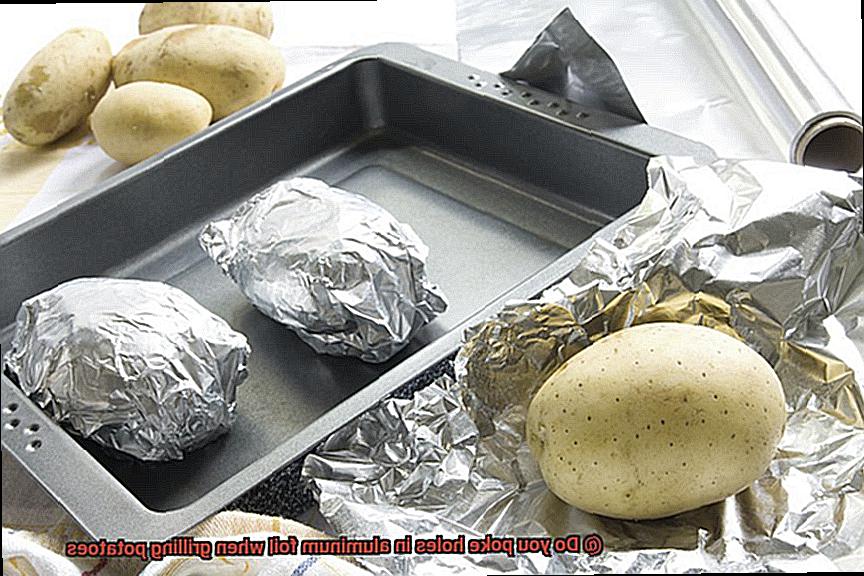
However, there are also a few potential drawbacks to consider:
- Flare-Ups: Poking holes can cause some of the potato juices to leak out onto the grill, leading to flare-ups and potentially charred or burnt spots on your potatoes.
- Sticking: The holes in the foil may cause some of the potato slices or wedges to stick to the grill grates, making them challenging to remove without breaking or tearing.
- Longer Cooking Time: The holes in the foil allow heat to escape, which can result in slightly longer grilling times compared to tightly wrapping the potatoes without any holes.
- Not Necessary for Smaller Cuts: If you are grilling smaller or thinner cuts of potatoes that will cook relatively quickly, poking holes may not be necessary. Simply wrapping them tightly in foil without puncturing any holes should suffice.
Science Behind Grilling Potatoes
Grilling potatoes is a culinary adventure that combines the art of grilling with the science of heat transfer. To achieve perfectly grilled spuds, you need to understand how heat interacts with moisture and how it affects the cooking process. Let’s delve into the fascinating world of grilled potatoes and uncover the secrets behind their deliciousness.
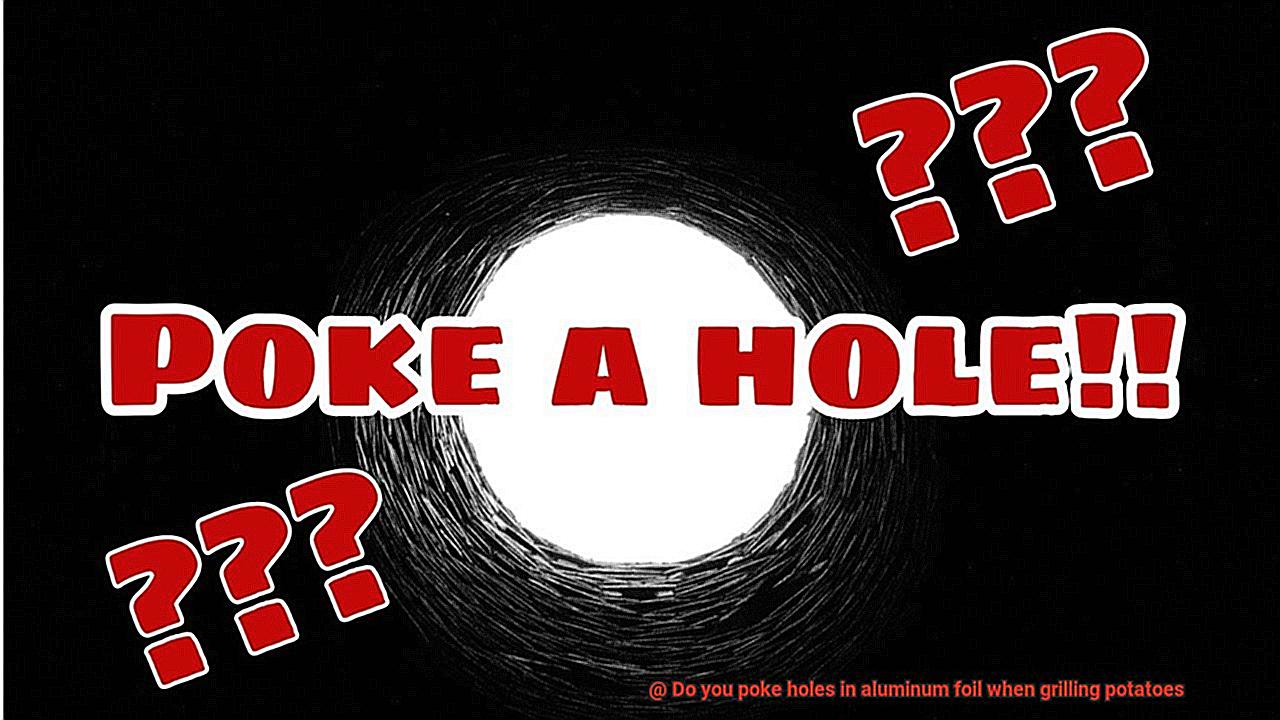
When you place potatoes on the grill, their high moisture content transforms into steam as it meets the heat. This steam plays a crucial role in cooking the potatoes from the inside out, ensuring they are tender and flavorful. To harness this moisture, aluminum foil comes into play. Wrapping the potatoes in foil creates a steam pocket, trapping that precious moisture and allowing for even cooking. Moreover, it helps retain the natural flavors and nutrients of the potatoes.
But here’s the twist – poking holes in the foil. Why would we do such a thing? Well, tightly wrapped foil without any holes can lead to a buildup of steam, resulting in soggy and overcooked potatoes. And nobody wants that. By puncturing small holes in the foil, you create escape routes for the steam. This prevents excessive moisture buildup and helps achieve that coveted crispy texture on the outside of the potatoes. Think of it as creating tiny vents for the steam to gracefully exit.
Now, don’t go overboard with hole-poking frenzy. The holes should strike a delicate balance – small enough to retain sufficient moisture but large enough to allow some airflow. This equilibrium is crucial for ensuring that your potatoes cook evenly and develop that irresistible crispiness.
Those little holes also allow for smoke penetration. That means your grilled potatoes will have an extra layer of mouthwatering smoky flavor.
However, remember that size matters when it comes to potatoes. Thicker spuds may require longer cooking times, and poking holes in the foil can help ensure even cooking throughout.
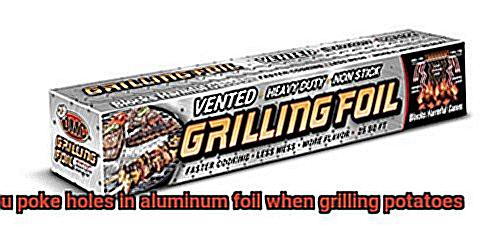
So, should you poke or not poke? Ultimately, it depends on your personal preference and desired outcome. If you crave crispy, evenly cooked potatoes, go ahead and poke those holes. But if you prefer a softer texture, you can skip the hole-poking extravaganza and wrap them up tight without any punctures.
Alternative Methods to Grilling Potatoes Without Using Aluminum Foil
Grilling potatoes without using aluminum foil can be achieved through a variety of alternative methods that result in delicious and perfectly cooked spuds. Here are some creative ways to grill potatoes without relying on aluminum foil:
- Parboiling: Begin by boiling the potatoes in salted water until they are partially cooked but still firm. This pre-cooking step ensures that the potatoes are fully tender inside while achieving a crispy exterior when grilled.
- Marinating: Infuse flavor into your potatoes by marinating them before grilling. Create a simple marinade with olive oil, minced garlic, chopped herbs like rosemary or thyme, salt, and pepper. Coat the potatoes in the marinade and let them sit for at least 30 minutes before grilling. This not only adds taste but also prevents sticking to the grill.
- Grilling directly on the grates: Slice the potatoes into thick rounds or wedges and brush them with oil to prevent sticking. Preheat the grill to medium-high heat and grill the potatoes for 5-7 minutes per side until they’re golden brown and cooked through.
- Using a grilling basket or tray: These specially designed baskets or trays prevent small or delicate food from falling through the grates. Slice or cube the potatoes and place them in the basket or tray. Grill until they’re tender and slightly charred.
- Utilizing a cast iron skillet or pan: Preheat the skillet or pan on the grill before adding the potatoes, allowing them to cook until crispy and golden brown. Season with salt, pepper, and desired herbs or spices for added flavor.
- Grilling in a parchment paper packet: For a healthier alternative, use parchment paper instead of aluminum foil. Season and wrap the potatoes in a parchment paper packet, then grill until tender. Parchment paper is heat-resistant and non-stick, making it safe for grilling.
The Decision to Poke Holes in Aluminum Foil Depends on Personal Preference
The decision to poke holes in aluminum foil when grilling potatoes is a matter of personal preference because it involves different factors such as texture, flavor, and evenness of cooking. Some people prefer poking holes to allow steam to escape, preventing the potatoes from becoming mushy. On the other hand, others argue that poking holes can lead to uneven cooking and loss of flavor.
Poking holes in the foil allows steam to escape, preventing the potatoes from becoming overly soft and mushy. When potatoes are wrapped in foil without any holes, the steam generated during cooking has nowhere to go and gets trapped inside the foil. This can result in steamed potatoes that have a soft and mushy texture, which may not be desirable for some individuals.
However, some people believe that poking holes in the foil can lead to uneven cooking. When holes are made in the foil, heat and smoke may penetrate through those openings and directly come in contact with the potatoes. This can result in unevenly cooked potatoes, with some parts being overcooked or even burnt, while others remain undercooked.
Additionally, there is a concern that poking holes in the foil can cause the loss of flavor. By puncturing the foil, juices from the potatoes can drip down onto the grill grates, resulting in a loss of moisture and flavor. Without the foil acting as a barrier, the natural juices of the potatoes may not be retained, potentially leading to drier and less flavorful potatoes.
Ultimately, there is no right or wrong answer when it comes to whether or not to poke holes in aluminum foil when grilling potatoes. It depends on personal preference and desired outcome. If you prefer your potatoes to be firm and moist, without any risk of sogginess, then poking holes may be a good option for you. However, if you prefer your potatoes to have a softer texture and are willing to take the risk of potential uneven cooking, then leaving the foil intact could be a suitable choice.
Experimenting with different methods and closely monitoring the cooking process will help achieve the desired results. Whether you decide to poke holes in the foil or leave it intact, it is important to adjust the cooking time and temperature accordingly to ensure that the potatoes are cooked to your desired level of doneness.
Factors to Consider When Deciding Whether or Not to Poke Holes in Aluminum Foil
When it comes to grilling potatoes with aluminum foil, there are several factors to consider before deciding whether or not to poke holes in the foil. These factors include cooking time, moisture retention, even cooking, flavor infusion, safety concerns, and personal preference.
Cooking time is an important factor to consider. Poking holes in the foil allows steam to escape, resulting in faster cooking. If you’re in a hurry and want your potatoes cooked quickly, it’s recommended to poke holes. However, if you have ample time and prefer a slower cooking process, you may choose not to poke holes.
Moisture retention is another consideration. Poking holes in the foil allows moisture to escape, potentially resulting in drier potatoes. If you prefer moist and tender potatoes, it’s best not to poke holes. On the other hand, if you enjoy crispy and dry potatoes, poking holes can help achieve that desired texture.
Even cooking is also crucial. Poking holes in aluminum foil ensures that steam can escape evenly during the cooking process. Without ventilation, steam can accumulate inside the foil packet and cause uneven cooking. By allowing steam to escape through the holes, you can prevent some areas from becoming overcooked while others remain undercooked.
If you like to infuse your potatoes with herbs, spices, or other flavorings while grilling, poking holes in the foil can enhance the taste. The holes act as channels for the flavors to seep into the potatoes during cooking, resulting in a more flavorful dish.
Safety concerns should not be overlooked. If you choose not to poke holes and tightly seal the foil packet, there is a risk of pressure build-up due to steam. This pressure can cause the packet to burst open and potentially lead to burns or injury. To ensure safety, it is generally recommended to poke a few holes in the foil to release steam and prevent any accidents.
Ultimately, the decision of whether or not to poke holes in aluminum foil when grilling potatoes is a matter of personal preference. Some people prefer the convenience and quick cooking time of poking holes, while others enjoy the slower cooking process and moist texture of not poking holes. Experimenting with both methods can help you determine which one suits your taste and cooking style best.
Tips for Grilling Potatoes with or Without Aluminum Foil
Grilling potatoes is a delicious way to enjoy this versatile vegetable during the summer months. Whether you choose to grill them with or without aluminum foil, here are some tips to help you achieve perfectly cooked and flavorful potatoes.
Grilling Potatoes with Aluminum Foil:
Grilling potatoes with aluminum foil can help to create a steam pocket, resulting in tender and evenly cooked potatoes. Here are some tips for grilling potatoes with aluminum foil:
To start, poke holes in the foil using a fork or knife. This allows steam to escape, preventing the potatoes from becoming mushy or soggy. It also allows for better airflow and prevents the foil from bursting due to steam build-up.
Next, properly wrap the potatoes by tightly sealing the foil around them. This prevents any leakage of steam or oil, ensuring that the potatoes cook evenly and retain their moisture.
Before placing the potatoes on the grill, it is advisable to partially pre-cook them by boiling or microwaving until they are just slightly tender. This reduces grilling time and ensures that the potatoes are thoroughly cooked without burning the outer skin.
If you prefer crispy skins on your grilled potatoes, remove the aluminum foil during the last few minutes of grilling. This allows for direct heat exposure and results in a delicious crispy texture.
Grilling Potatoes without Aluminum Foil:
If you choose to grill potatoes without aluminum foil, there are a few tips to keep in mind:
- Start by selecting the right type of potato. Varieties like russet or Yukon gold have a higher starch content, which helps them hold their shape better on the grill.
- To ensure even cooking, partially cook the potatoes by parboiling or steaming them for a few minutes. This makes them easier to grill without burning or sticking to the grates.
- Before placing the potatoes on the grill, brush them with oil or marinade. This creates a barrier between the potatoes and the grill grates, preventing sticking and ensuring even cooking.
- Maintain consistent heat when grilling without aluminum foil. It’s important to monitor the potatoes closely and turn them occasionally to ensure even cooking and prevent any burning.
Regardless of whether you choose to grill with or without aluminum foil, don’t forget to season the potatoes well. Sprinkle them with salt, pepper, and your favorite herbs or spices before grilling to enhance the flavor.
2VP2cH56idA” >
Conclusion
In conclusion, it is highly recommended to poke holes in aluminum foil when grilling potatoes.
By doing so, you allow the heat and smoke to circulate freely, ensuring that your potatoes cook evenly and thoroughly. Without these tiny perforations, the foil becomes a barrier, trapping moisture and preventing the potatoes from achieving that perfect crispy exterior.
So don’t be afraid to grab a fork and puncture those spuds before wrapping them up.

